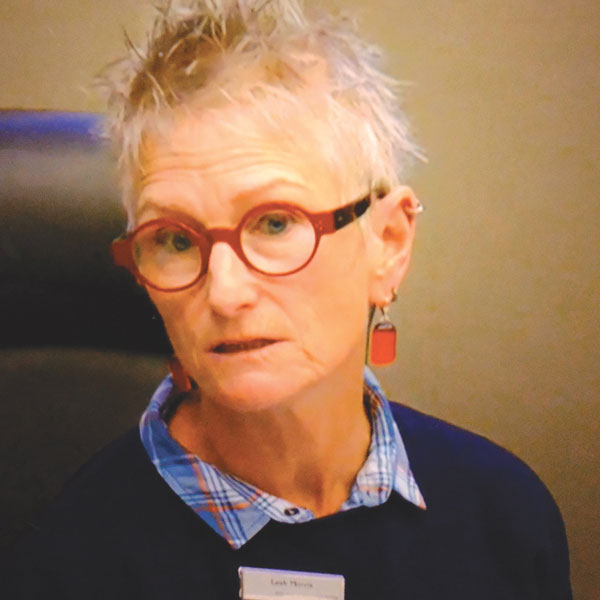Front Street Animal Shelter killed 1,132 animals in 2023. This year, more than 150 dogs and cats have lost their lives.
These numbers are important. Hayden’s Law, enacted in 1998 to move California toward a no-kill state, says “no adoptable animal should be euthanized if it can be adopted into a suitable home.” This includes animals who “could become adoptable with reasonable efforts.”
“Killing adoptable animals is easier than putting in the effort to save them,” says Julie Virga, a local animal advocate who campaigns against what she calls Front Street’s mismanagement. “This is a complete failure of leadership.”

The Sacramento Animal Care Services Citizens Advisory Committee was established to provide strategy and policy recommendations to the City Council to help improve animal care services.
The committee’s 2023 annual report—its first report in two years—makes no mention of the number of dogs and cats killed at Front Street.
Instead, the report makes three recommendations: improve the response rate of animal-related 311 calls; conduct a needs assessment for renovating or relocating the city shelter; and review the committee’s scope.
All well intended. But where is stop the killing?
Committee Chair Leah Morris says the advisory committee is not about operations. “The charge of the committee is to look at things around education, things around policy, things around quality of service,” she says.
Policy is the key word.
At recent meetings, time is taken up to discuss things like a Front Street marketing brochure—content, format, quality of paper. In his monthly update, shelter manager Phillip Zimmerman reports on staff vacancies, vaccine clinics, free adoptions, fundraising events.
Zimmerman makes no mention of the number of animals killed. Committee members don’t ask.
The annual report ignores the shelter’s policy to turn away friendly healthy cats and kittens who face starvation, death and an endless cycle of reproducing.
The policy disregards state law that says taking in animals “is important for public health and safety, to aid in the return of the animal to its owner, and to prevent inhumane conditions for lost or free roaming animals.”
The advisory committee is required to increase “awareness of the importance of spay/neuter.” Hayden’s Law calls for shelters to “aggressively promote spay and neuter programs to reduce pet overpopulation.”
Nearly 8,000 stray animals entered Front Street last year. Yet committee recommendations to the City Council are void of strategies to bolster spay/neuter.
At last November’s committee meeting, Zimmerman reported on applying for a PetSmart Charities spay/neuter grant. He would know by January. At the January meeting, he made no mention of the grant (which Front Street did not receive). Committee members didn’t ask.
Front Street has nearly 200 cats and more than 500 dogs in foster care, many via “foster-to-adopt”—a practice that allows adopters to take home animals before being altered. Hayden’s Law says “shelters should not adopt out animals that are not spayed or neutered.”
Yet, the advisory committee ignores policy that skirts the law and can lead to pets reproducing prior to spay/neuter or not being altered at all.
Front Street encourages “community sheltering,” a practice promoted by UC Davis Koret Shelter Medicine Program and embraced by Zimmerman, who says shelters are “scary places.”
Euthanasia numbers look better when dogs and cats are diverted away from the shelter through reduced intake and “surrender-prevention programs.”
Hayden’s Law says, “It is better to have public and private shelters pick up or take in animals than private citizens.”
“The Koret Shelter Medicine Program is housed in a renowned veterinary school,” says committee Chair Morris, a retired registered nurse whose background is in human health policy. “I believe that their work and academic research and policies are based on sound thinking.”
Maybe so, but Front Street policies, such as turning away stray animals and killing hundreds of adoptable pets, should be scrutinized.
“California state laws were and are violated openly and arrogantly by director Zimmerman with the full knowledge and complicity of city leaders,” Virga says.
The advisory committee is charged with providing “a forum for public discussion on the city’s efforts to bring about positive change” at Front Street.
Virga and other residents speak at monthly advisory committee meetings, meet with city leaders, reach out to Zimmerman. Their pleas are ignored. Requests to add items to meeting agendas fail.
“As far as the annual report, absolutely none of the public feedback was taken into consideration,” says Elyse Mize, a local advocate calling for changes.
The annual report acknowledges the failures of the committee’s Community Participation Workshop held last March.
Committee members sat on the dais away from the public. The facilitator stood with her back to the audience. Public comments were cut short. Questions by community members went unanswered. Zimmerman gave prepared responses to questions rehearsed by the facilitator.
Two months later, the committee approved a second workshop—this time called a Community Conversation—to correct its mistakes. A year later, no “conversation” has been rescheduled.
“It remains incredible to watch advocate after advocate, some extremely experienced in shelter work, advocacy, rescue work, etc., be snubbed repeatedly and cut off after two minutes of speaking by people with no experience,” says animal advocate and former Sacramento County Deputy District Attorney Hilary Bagley Franzoia.
Virga, Mize and Bagley Franzoia, who headed up the DA’s Animal Cruelty Unit and Animal Cruelty Task Force, applied to be on the advisory committee in 2021. All were declined.
Virga’s response to the annual report: “After all those meetings, all the things we have brought up, all the animals who have lost their lives—this is it?
“What’s really sad? If that committee was an independent body that cared about animals—think of the good they could do.”
Cathryn Rakich can be reached at crakich@surewest.net. Follow us on Facebook and Instagram: @insidesacramento.







